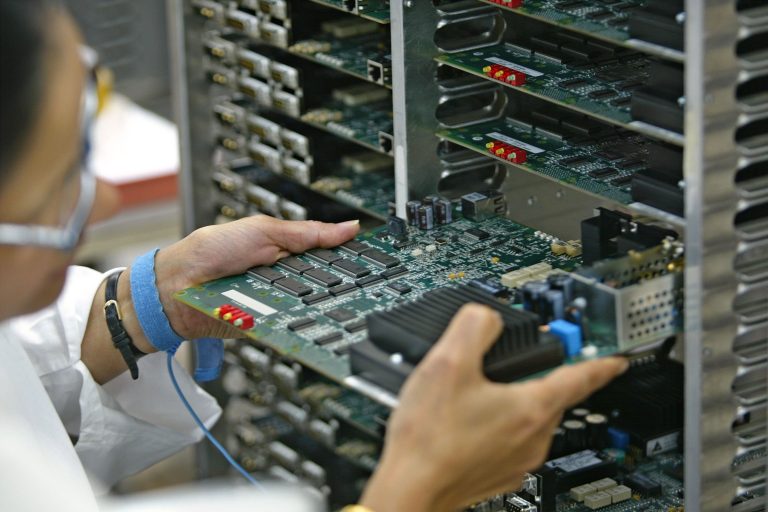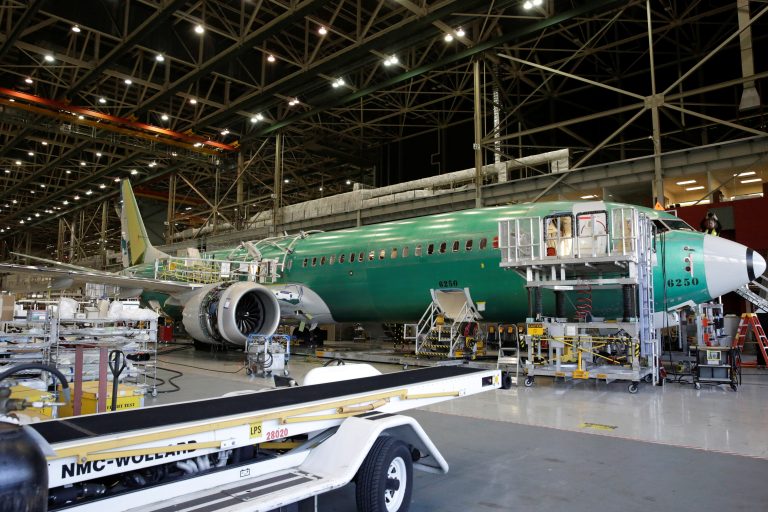JERUSALEM — Israel’s government agreed to give Intel a $3.2 billion grant for a new $25 billion chip plant it plans to build in southern Israel, both sides said on Tuesday, Dec. 26, in what is the largest investment ever by a company in Israel.
The news comes as Israel remains locked in a war with Palestinian militant group Hamas in the wake of the Oct. 7 Hamas attack on Israel. It also is a big show of support by a major U.S. company and a generous offer by Israel’s government at a time when Washington has increased pressure on Israel to take further steps to minimize civilian harm in Gaza.
Shares of Intel, which has a bit less than 10 percent of its global workforce in Israel, opened up 2.73 percent at $49.28 on Nasdaq.
The expansion plan for its Kiryat Gat site where it has an existing chip plant that is 42 km (26 miles) from Hamas-controlled Gaza is an “important part of Intel’s efforts to foster a more resilient global supply chain, alongside the company’s ongoing and planned manufacturing investments in Europe and the United States,” Intel said in a statement.
Under CEO Pat Gelsinger, Intel has invested billions in building factories across three continents to restore its dominance in chip-making and better compete with rivals AMD, Nvidia and Samsung. The new Israeli plant is the latest investment by the U.S. chipmaker in recent years.
Success
You are now signed up for our newsletter
Success
Check your email to complete sign up
“Support from the Israel government will … ensure that Israel remains a global center of semiconductor technology and talent,” Intel vice president Daniel Benatar said.
Intel had previously received around $2 billion in the past 50 years in Israeli grants in other facilities there.
Ofir Yosefi, deputy director general of Israel’s Investments Authority, said Intel chose a higher grant and tax rate over an offer for a lower grant and lower tax rate — 7.5 percent instead of the normal corporate rate of 23 percent.
He told Reuters the process took months since a grant of such magnitude needed a review and independent analysis that it was economically viable. It was determined Israel would reap much higher fiscal and economic benefits, he added.
“This investment, at a time when Israel wages war against utter wickedness, a war in which good must defeat evil, is an investment in the right and righteous values that spell progress for humanity,” Finance Minister Bezalel Smotrich said.
In Germany, Intel plans to spend more than 30 billion euros ($33 billion) to develop two chip-making plants in Magdeburg, as part of a multi-billion-dollar investment drive across Europe to build chip capacity. Berlin has pledged big subsidies to attract Germany’s biggest-ever foreign investment.
In 2022, Intel said it would invest up to $100 billion to build potentially the world’s largest chip-making complex in Ohio, and rivals Samsung and Taiwan Semiconductor Manufacturing Co or TSMC also have announced big investment plans in the U.S.
Intel, one of around 500 multinationals in Israel, established a presence there in 1974 and now operates four development and production sites, including its manufacturing plant in Kiryat Gat called Fab 28 that produces Intel 7 technology, or 10 nanometer chips, and employs nearly 12,000 people in the country while indirectly employing another 42,000 more.
The Fab 38 plant is due to open in 2028 and operate through 2035.
Reporting by Steven Scheer; editing by Angus MacSwan, William Maclean, and Chizu Nomiyama.













